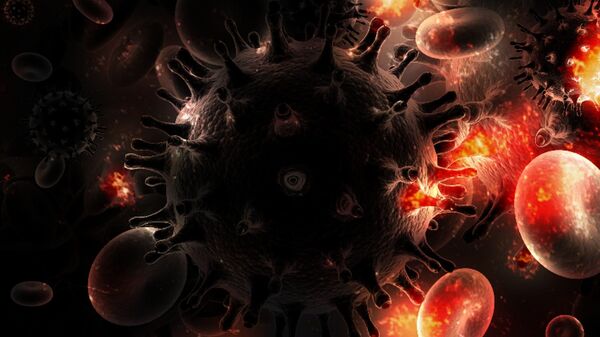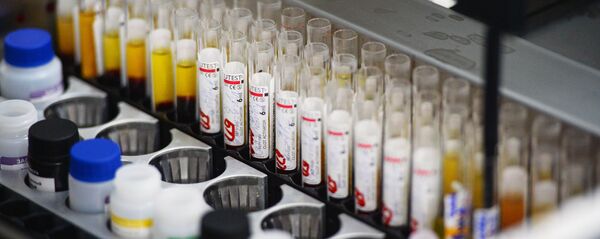Eager to find an effective and dependable protective shot against the virus that causes AIDS, scientists have started another large efficacy study of a two-vaccine combination developed by Johnson & Johnson with the US National Institutes of Health (NIH) and the Bill & Melinda Gates Foundation.
Another HIV vaccine study of a similar scale, also backed by NIH, began last November. Both studies aim to surpass the results of a 2009 trial of a different vaccine in Thailand that showed a 31 percent reduction in infections. According to J&J Chief Scientific Officer Paul Stoffels, it is possible to achieve effectiveness above 50 percent.
"That is the goal. Hopefully, we get much higher," Stoffels told Reuters.
The newest trial, known as "Imbokodo," involves 2,600 sexually active women living in South Africa, Malawi, Mozambique, Zambia and Zimbabwe. Having received either the experimental vaccine or a placebo at clinical research sites in South Africa, they will be monitored for three years to see if it prevents infections.
Although there have been great advances in HIV treatment and prevention, and modern HIV drugs can turn the disease from a death sentence into a chronic condition, the number of people infected continues to grow and a vaccine is still seen as a critical factor in rolling back the pandemic.
Some 37 million people around the world currently have HIV and nearly 2 million more people get infected every year.
"Having a preventive vaccine would be a vital tool in a comprehensive global strategy to end the pandemic," said Johan van Hoof, Janssen Vaccines' head of research and development.
Initial clinical results reported at an AIDS conference in Paris in July showed the mosaic vaccine was safe and elicited a good immune response in healthy volunteers.



